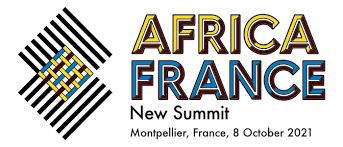The Africa-France Summit, which opens on Friday, October 8 in Montpellier, France, is unprecedented in its new approach.
By Cheikh Diop
For the first time since 1973, no African head of state has been invited to this meeting between France and the African continent.
French President Emmanuel Macron will address African youth instead of African presidents.
This new approach bears the imprint of Cameroonian intellectual Achille Mbembe.
The theorist of post-colonialism led the preparations for the meeting before handing over his report to the French president on “redefining relations between France and the continent.”
The Cameroonian-born historian believes that France is too disconnected “from new movements and political and cultural experiments” carried out by African youth.
This new format will be an opportunity “to listen to the voice of African youth and to get out of the formulas and social networks,” according to a statement from the French Presidency.
For this 28th edition, young entrepreneurs, members of civil society, the volunteer corp, and ambassadors of sports and culture are the guests of the summit.
The summit will be around five major themes: civic engagement, entrepreneurship and innovation, higher education and research, culture and sport.
Delegates will discuss for half a day how to establish new networks, design joint projects and build bridges.
President Macron is expected to exchange with 12 young rather unknown personalities, identified during preparatory debates held in 12 African countries.
The debates will focus on “the paths to reconciliation.”
Economic issues will also be discussed with 350 selected African entrepreneurs.
In addition, a roundtable on the restitution of cultural property, the process of which is underway, will be at the heart of the discussions.
As such, Macron will have to return to his promise made in November in 2017 at the University of Ouagadougou (Burkina Faso) to “create the conditions for temporary or permanent restitution of African heritage to Africa” by 2022.
But for the Senegalese scholar Boubacar Boris Diop, who expressed himself in a tribune published on senegalactu.info, “the face-to-face between Macron and African civil society would have been much more credible or even fruitful if we had at least felt on the ground, concrete signs of his will to change.”
This summit should give a “facelift” to relations between France and Africa.
At the end of the discussions, Macron is expected to announce the creation of a fund to support initiatives to promote democracy, programs allowing greater student mobility, or the establishment of a “Euro-African forum on migration.”
CD/fss/as/APA


